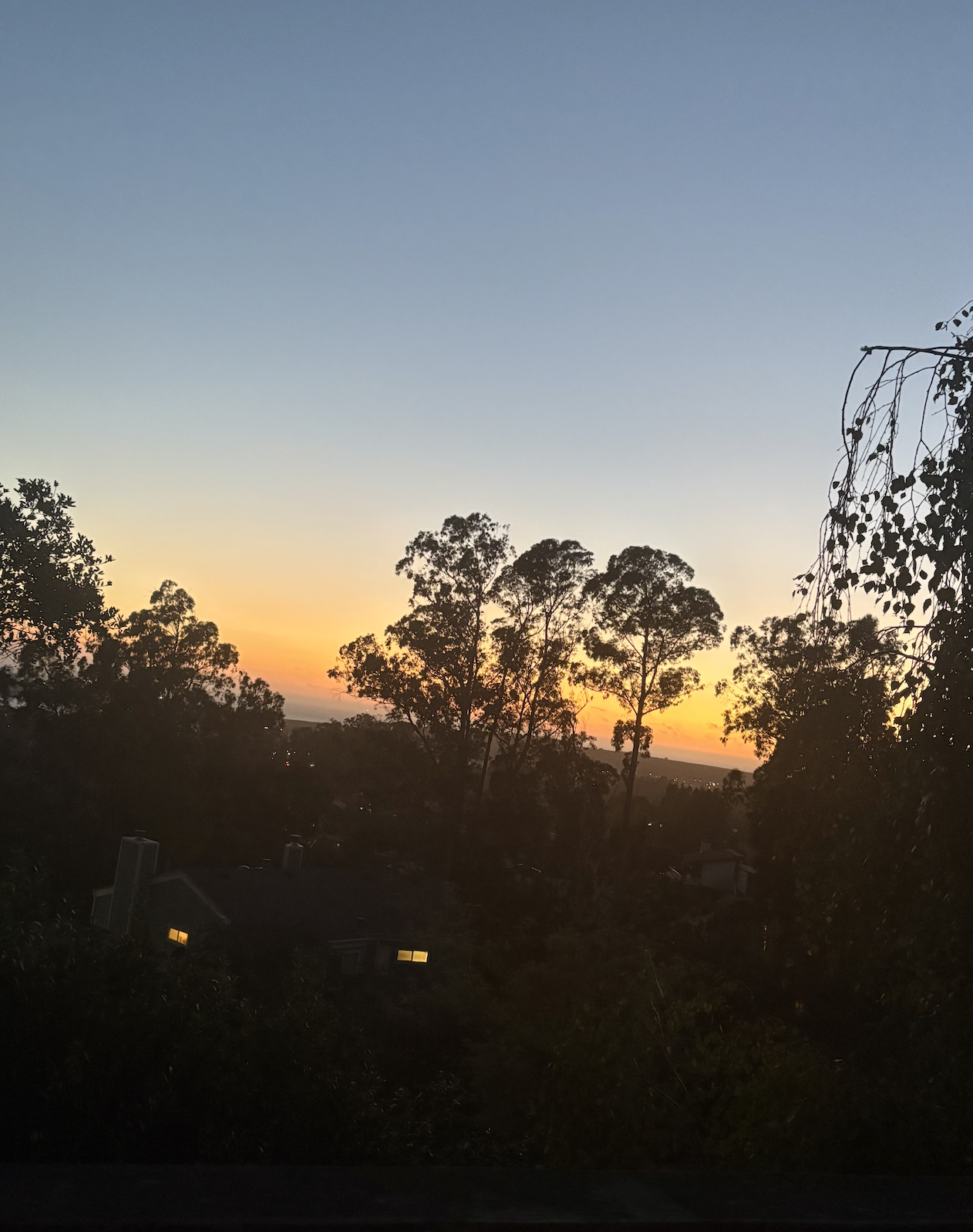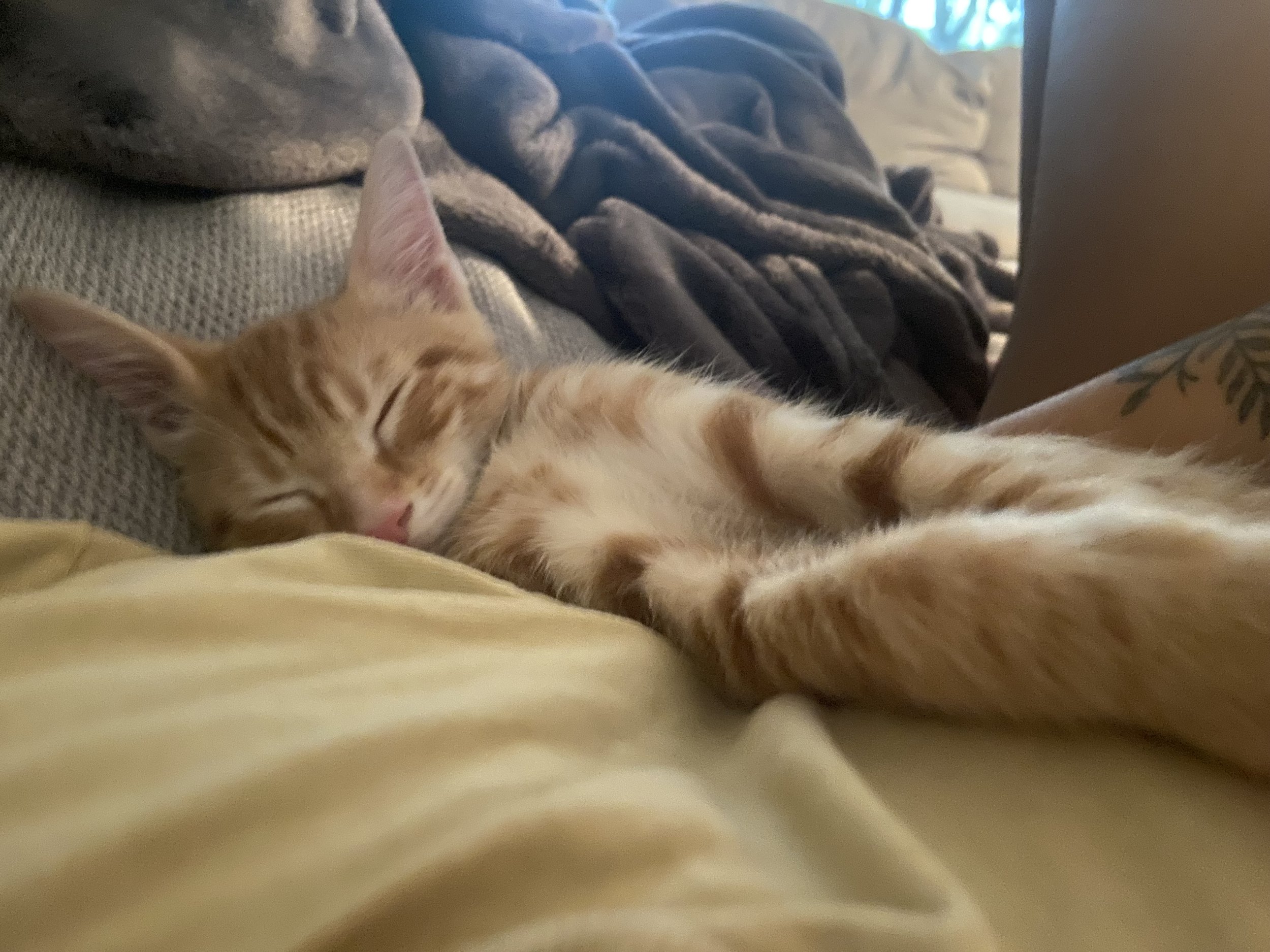
losing fantasy & finding self
This summer, I lost my imagination.
As I shed fantasies that rooted themselves in me before I could even speak, something in my imagination had gone silent too. It was jarring, and continues to be. I ask myself questions about the future and feel a block of tundra where there used to be a colorful flood of dopamine. I try to dust off what I truly desire, and find only more dust.
Here’s the truth I’m learning:
You don’t lose your imagination.
You lose your illusion.
And that’s a very different thing.

the freedom side of the coin
If we forget the freedom side of the coin of our decisions, we end up in tantrum. Whining.
“Why me?”
Why my job, my dog, my child, my relationship, my mortgage, my solitude?
We forget that at some point, as adults, we chose. Maybe for stability. Maybe for meaning. Maybe because the alternative felt worse. But we chose, we acted.

An Anxiety Called Mother
A lot of us may have learned in therapy that oh! That really shitty, mean voice is actually an internalized caricature of a real person in our lives. It’s not necessarily that “I’m really mean to myself.” It’s that your brain brilliantly downloaded the programming of an abuser and turned up the volume so you could predict and move proactively before they did. You can’t hurt me if I’ve already hurt myself first. I’m already judging and criticizing myself, so when/if you decide to give me feedback, I’ll be “ready.”
It sounds extreme, which arguably the brain often is. But it’s also protective: better to practice devastation than be blindsided by it.

How to De-Parentify Life
What if life wasn’t something you had to figure out before you could enjoy it? What if it wasn’t a test you could pass or fail, but a collaboration you’re allowed to step into- imperfectly, in your own rhythm?
What if the rulebook you keep searching for doesn’t exist- not because you missed it, but because it was never handed out in the first place? What if everyone is just piecing it together as they go, and the real skill isn’t memorizing the “right” answers and making “right” decisions, but learning to trust your own way of responding?

Begging Presence
Danielle Dutton writes, "Viktor Shklovsky argues that we perpetually grow habituated to everything around us- "Habituation devours work, clothes, furniture, one's wife, and the fear of war.."—and that the job of art is to make the world strange so that we might see it again rather than simply recognizing it out of habit.
Only presence and attention can reawaken us to the textures we’ve grown blind to.
If we can’t practice presence—if we forget how to return to it again and again—we succumb to novelty to feel alive. New people. New lovers. New projects. New highs.
The brain forgets. The pace of life pushes us along. And we forget why we love what we love.

returning the gift of being gifted
This is me, reporting live from the chrysalis — that sticky, tough part of the growth spiral where old narratives dissolve, and new ways of being take form. This time, the transformation is centered on shedding the weight of "Special," "Gifted," and all the identities wrapped in shiny gold foil.
Let’s say you grew up in a chaotic home. Maybe emotional attunement was rare, at best. Maybe the energy in your house was unpredictable, critical, or downright explosive. And maybe, in the midst of all that, the warmest, safest moments you had were the ones where you were being celebrated—when your talents, wins, or report cards brought a rare sense of feeling seen.

early dating anxiety & love’s uncertainty: navigating the “sleeping bunny”
Norepinephrine. Dopamine. Adrenaline. Cortisol. The early days of connection—whether a crush, a new romance, or the spark of a deepening friendship—can challenge the nervous system’s familiar rhythms. The brain, usually a steady stream of predictable thoughts, suddenly becomes a chaotic, swirling river of anticipation and analysis.
Gabi Abrão likens it to a sleeping bunny—a fragile, delicate thing, not meant to be grasped too tightly. And yet, many people have been conditioned to believe in the relationship escalator, the idea that every connection should move predictably through predefined stages. When that script isn’t followed, it can create a sense of uncertainty and self-doubt, prompting projections from loved ones.

where is my butt? finding grounding in dysregulation
“Yeah, I call that ‘where is my butt,’” my client says, a hint of humor breaking through as we review ways to anchor herself during anxious moments. It’s a refreshingly simple concept. While Instagram reels and self-help books might tout breathwork, meditation marathons, or aesthetic journaling as the gold standard, let’s be real—when you’re deep in the trenches of distress, picking up a pen or sitting in stillness can feel hard. The next, most accessible rung on the ladder: Where is your butt?
Can you feel where it meets the chair, the couch, the floor? Is it heavy, grounded, held? Notice how the Earth, in its quiet, reliable way, supports you without asking for anything in return.

you don’t deserve it
“I deserve love” I said to a mentor of mine, years ago. She said—“Try to not use the words ‘love’ and ‘deserve’ in the same sentence. Love is never, and I mean never, something one must earn.” -Andrea Gibson
I think about this often, especially in sessions where I find myself gently saying, “You deserve rest.” And yet, I can’t help but question it, just like Andrea’s mentor. Some things—like rest, love, and care—shouldn’t be tied to the idea of deserving. Even though I deeply believe in my clients' worth, they don’t “deserve” good things because of what they’ve been through or how much they sacrifice for others.

bawling at the airport and talking to blueberries
Something we all need, whether you’re a parent or not, is more empathy—not just a cognitive understanding but an emotional, felt sense—of what it was/is actually like to be a kid.
I recently found myself at the airport with my 2-year-old cousin, who was bawling and screaming because we went on the moving walkway and she wanted to jump off at the end. In her little brain, that jumping meant play, a sense of control, and potential regulation to her nervous system. We didn’t have the time for that because adults know planes leave when they’re scheduled to leave.
Imagine being her—barely awake, whisked into a new car, then plopped down in this busy, loud, mean morning chaos… and adults expect you to just go along with it.

we don’t just get to love people how we want to
We don’t just get to love people how we want to. I learned this from my cat, and it stands for every single person I get to love in this lifetime.
When I prioritize the ways in which I want to practice giving love, it inverts what love really is, making my giving to you, more about my giving. I love you so much I want to give you so many gifts. I love you so much that when you tell me my gifts don’t make you feel loved, I… get mad? Yikes. Bell Hooks would probably shiver at that thought.

leftovers
When we suppress emotions, they don’t just disappear (I know ugh). One of my clients used to say he’d put his emotions in his “back pocket,” and I’d usually reply with, “You mean your volcano.”
Our metaphorical back pocket isn’t so metaphorical—we have a bunch of them, scattered throughout our bodies. Our hips, stomach, hearts, even our cells can overflow and ache from all the moments of energy we’ve tucked away.
If they aren’t already becoming bodily pains or illness, these stored sensations may explode at once periodically.

unknowing the ones we love
Picture this: I’m standing outside a breakfast café on a tropical island, feeling the warmth of the sun and grateful to be there. The soufflé pancakes in the window are calling to me, but the crowd waiting to be seated is stirring some internal anxiety. I’ve been waiting alone for thirty minutes when my sister walks up and asks, “Did you put our name down?”
In an instant, my whole body goes hot—pain, anger, everything surging. I snap. At this point in my journey, “snapping” usually means one regretted sentence escapes before I can catch myself.

perfectionism vs. presence
Do you often find yourself zoning out, pulled backwards into a haze of blurred vision and non-presence? Do you yawn unexpectedly or feel sleepy just thinking about stressful situations?
If we lean into pop psychology's current obsession with trauma, we might uncover some explanations worth exploring. Maybe dissociation, zoning out, or disembodiment are "solutions" to the messiness of being fully present.
If you've ever been fully zipped into the cozy clarity of the now, you might've noticed how fast time flies. When we’re not stuck worrying, planning, or making up stories, time slips right through us. We feel different, calm and sometimes, things get missed. That doesn’t seem fair, right?

sorry
If we are in relationship with everything, all the time, then we also have a relationship to certain words, and the rituals around them. One of the most potent of these is the muttered, proclaimed, or shouted: “I’m sorry.”
I think it’s safe to guess that most of our relationships to The Apology started with similar choreography. Perhaps you were three, launching a LEGO at your sister's forehead just to test gravity. Or maybe you did it because, let's face it, siblings can feel like a threat to your very survival, snatching away precious resources and the love of your parents. The LEGO makes contact and then- a taken aback grown up, a sharp gasp and “Say sorry now.” That was it- your first encounter.

not knowing
I have a part of me that shudders and cringes whenever I find myself judging someone for not knowing something. I cringe because other parts of me know the truth- that to know anything is to have had a mere chance encounter with it.
You know how to use a hammer because your dad built a treehouse with you when you were 12. I still don’t know how to cook meat because my mother is a stunning cook who happens to lack a desire to teach. You’re judging me now probably. That’s okay. That’s the point of this essay. We often find ourselves policing each other on what we have encountered in our lives, the data we are or are not familiar with, the things we’re supposed to just know.

grief & my take on her
A lot of our emotions feel like they happen to us. They are informative experiences, lively entities full of bodily sensations. Sadness is a noun (says Google). Well, I consider grief a verb. To me, it’s a slippery force, throwing us into puddles and pockets out of nowhere. It’s a lot of doing—doing that is often forced upon us. I call it "her" because it’s cyclical and has seasons.
